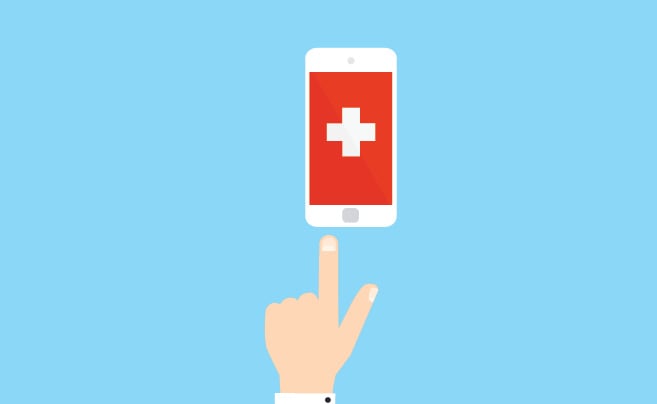It may be called the death of the desktop but 65% of digital media is consumed on mobile devices and this figure is only growing.
Communications regulator Ofcom said UK adults spend an average of 8 hours and 41 minutes a day on media devices, compared with the average night’s sleep of 8 hours and 21 minutes. That’s more time on digital devices than sleep![1]
A lot of emphasis is placed on exercise and diet for general health and wellbeing, but a big part of the wellness and vitality picture for leading in life is often left out: mindset and mental clarity.
How can you start right now to help deal with stress and help your body cope with daily mental and physical demands? By giving yourself a regular digital detox—step away from screen time and reconnect with yourself, your teams/family and the environment around you. This break helps us to regain inspiration, creativity, and passion for what we do.
Taking regular mini-breaks — just a few minutes a day, every day — away from your laptop, phone, tablet and TV can rapidly produce great results.
8 benefits of a digital detox
Taking a break from technology helps you:
- Reduce the effects of dry eyes and strained vision
- Create a pause of mental clarity and creativity
- Reconnect you with your surroundings and your purpose
- Make better informed decisions from your gut instinct
- Notice your posture and your breathing
- Improve sleep
- Reduce stress
- Increase mental and physical vitality
Practical tips for a daily reboot
During the day
Place a sticky note on your computer that says ‘Take a nano break’: get up and walk away from your computer, go talk to a colleague rather than emailing across the room.
Stay off Facebook/social media in the morning. On the way to work listen to music or a podcast, meditate or read a book.
Take a fresh-air break at lunch time, rather than eating with your phone or iPad in front of you.
Look up, look around—take a quick walk around the office, interact with your teams in person, walk the corridors during busy periods at work. On the weekends do something active with your kids.
Use time away from work as time for you to re-charge your mental and physical batteries.
At night
Avoid TV, illuminated alarm clocks and other digital stimuli in the bedroom.
Read a book before you go to sleep. Meditate and concentrate on breathing.
Channel your thoughts from worry to a place of peace.
Create a regular bedtime routine and a regular sleep-wake schedule.
Create a restful environment that is dark, cool and comfortable.
Play restful music to help you relax.
Keep a diary of things that are on your mind, get them out of your head and on to paper—even if it’s a list of things to do for the next day.
Think of a digital detox as recharging your own batteries. If we don’t fully recharge, then we diminish our energy levels, and our ability to handle stress and perform daily tasks. This is also true for creative thinking, problem solving and reigniting passion for what you do.
Step away from the screen and take your strategic plans to the whiteboard, do some thinking with a new view, outdoors on a walk, or go old-fashioned and keep a notebook of thoughts, ideas, notes to yourself and vision.
Replace screen time with face-to-face time for stronger interpersonal relationships, get to know what’s really going on inside your organisation and appreciate the fresh perspective you’ll gain from looking 3cm up.
Sometimes you need to disconnect to reconnect.





